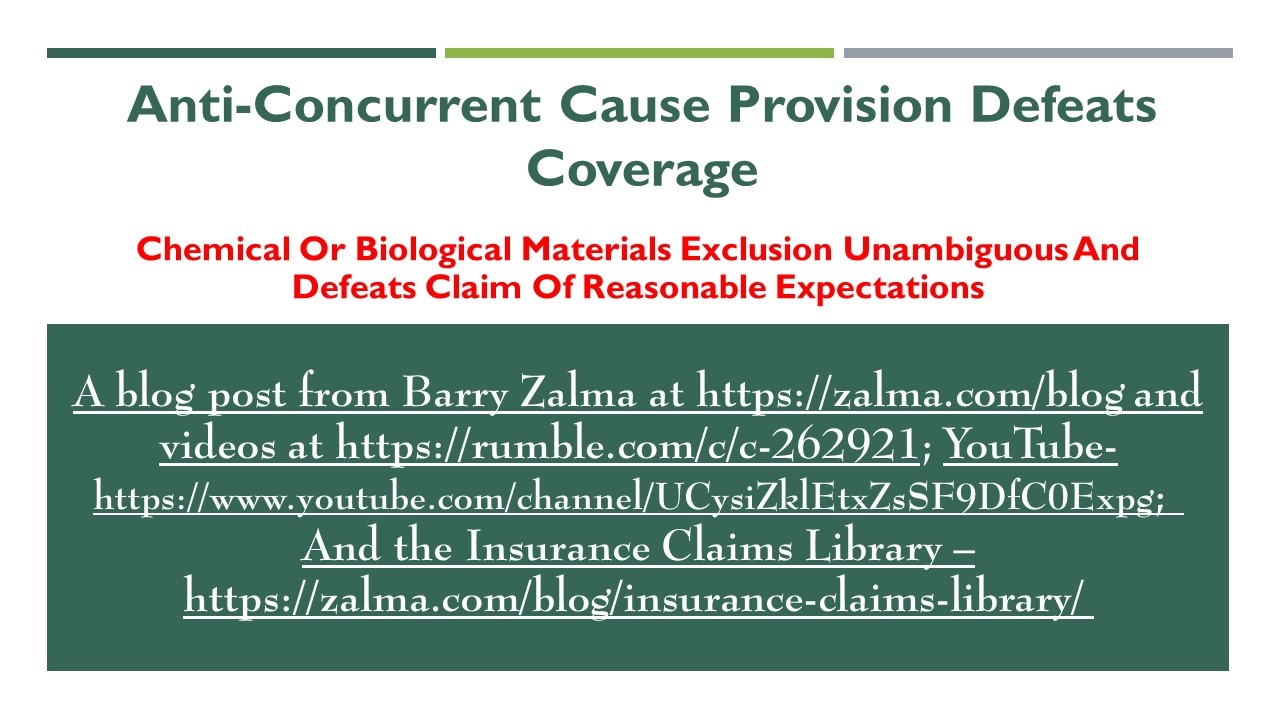Reasonable Expectations do not Defeat Clear and Unambiguous Policy Langugae
نشر بتاريخ 2021-02-19 14:13:04
0
3كيلو بايت

إعلان مُمول
We are 100% funded for October.
Thanks to everyone who helped out. 🥰
Xephula monthly operating expenses for 2024 - Server: $143/month - Backup Software: $6/month - Object Storage: $6/month - SMTP Service: $10/month - Stripe Processing Fees: ~$10/month - Total: $175/month
البحث
الأقسام
- Art
- Causes
- Crafts
- Crime
- Dance
- Drinks
- Film
- Finance
- Fitness
- Food
- الألعاب
- Gardening
- Health
- الرئيسية
- Literature
- Music
- Networking
- Paranormal
- أخرى
- Politics
- القصص
- News
- Party
- Science
- Religion
- Shopping
- Sports
- SyFy
- Politically Incorrect
- Philosophy
- Theater
- Technology
- Wellness
إقرأ المزيد
A Video Explaining the Standard Mortgage Clause in a Property Insurance Policy
The Mortgage Clause to a Property Insurance Policy
Read the full article at...
Guilty of Insurance Fraud
Guilty of Insurance Fraud
Read the full article at...
Fraud Perpetrators Have No Morals
Doctor Who Defrauded Health Insurers Tried to Back out of Plea...
Construction Contract Controls Over "Other Insurance" Clause in Policy
Insurer Must Defend and Indemnify Insured Because of Indemnity Agreement in Construction...




Read the full article at https://lnkd.in/gQHDiST and at https://zalma.com/blog plus more than 3600 posts.
Courts deal with claims from insureds that claim their reasonable expectations of coverage should supersede the policy wording when the clear and unambiguous language of the policy establish that the expectations of the insured are not reasonable nor correct. Over the 53 years I have worked in the insurance business I have asked hundreds, if not thousands, of individuals if they read and understood their policy. Only two answered in the affirmative — both lied.
In Lang Fur Farms, Inc., et al. v. Bird Island – Hawk Creek Mutual Ins. Co., A20-0683, Minnesota Court Of Appeals (February 8, 2021) insureds challenged the partial summary judgment granted to the insurer.
ZALMA OPINION
Not all states allow the concurrent cause analysis in first party claims like Minnesota, California, for example, that first stated the doctrine, has limited it to only apply to third party claims. People who acquire insurance should read it, or hire a professional risk manager to read it for them, to ascertain coverage.